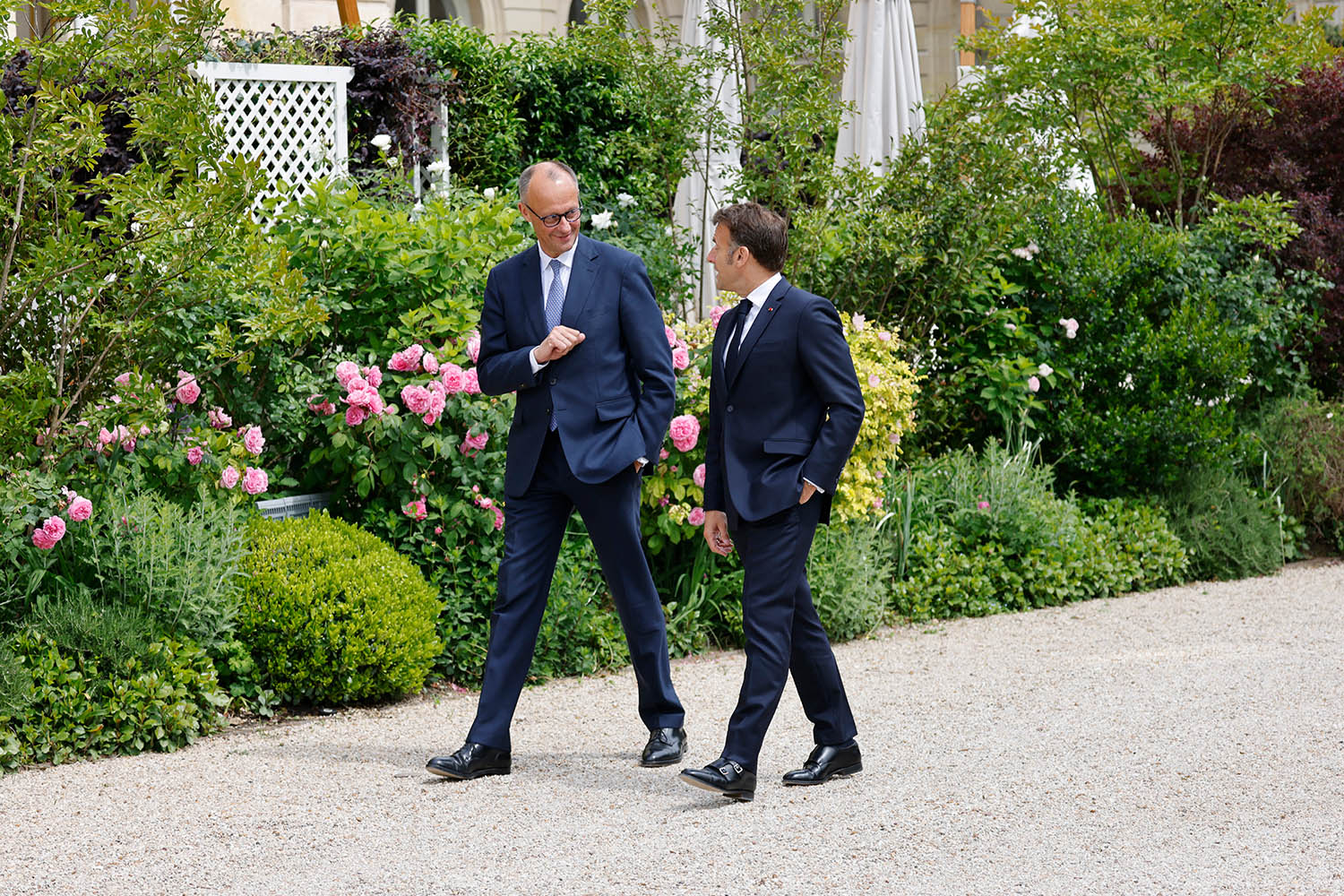‘One of the tests of the cabinet will be whether ministers’ business cards contain a fax number.” So quipped a corporate leader to me on the day Friedrich Merz was not quite crowned and then crowned the 10th chancellor of postwar Germany.
The events in the Bundestag last week provided an embarrassing overture to a tenure that is already being written off by some and described by others as the last-chance saloon for democratic politics, with the far-right Alternative für Deutschland waiting in the wings.
Much of this alarmist talk belongs to Germans’ national sport of doing their country down. Neither the state finances nor the political system is as weak as the pessimists proclaim. Yet Merz knows he doesn’t have long to deliver on a difficult agenda: multiple crises around the world, satisfying public demand for tighter immigration controls and modernising an economy that is in a protracted slump.
The short-term task is to start delivering growth. The worst performer in the G7, Germany contracted in 2023 and flatlined in 2024. A tiny forecast rise for 2025 was recently revised down.
Some economists predict a modest return to growth sooner than had previously been forecast, thanks to an injection of €500bn for infrastructure and an almost blank cheque to increase defence spending that Merz cajoled through the outgoing parliament weeks before taking office.
The manoeuvre marked a spectacular U-turn for him and his Christian Democratic Union (CDU), which had spent the previous decade and a half proclaiming the virtues of the “debt brake” that severely limited government borrowing.
The CDU went into the general election campaign at the start of this year on such an austerity ticket, only to reverse it just before polling day. Merz was accused of double-crossing the electorate.
A more benign explanation is that he was galvanised into the change by the aggressive remarks of JD Vance, the US vice-president, at the Munich Security Conference in mid-February, in which he told Germany and Europe they were on their own. In the post-election coalition negotiations, Merz was forced to go along with the demands of the Social Democrats (SPD) to open the coffers elsewhere.
Suspicion of his motives was one of the reasons for the refusal of 18 MPs from the SPD and CDU to endorse Merz as chancellor in what most people assumed was a foregone conclusion on Tuesday. That he prevailed in a second vote a few hours later does not remove the sense of fragility around the incoming government.
Merz could turn the false start to his advantage. He and the incoming cabinet know that the tasks facing them are urgent. The government has four years to deliver – if it survives that long.
Newsletters
Choose the newsletters you want to receive
View more
For information about how The Observer protects your data, read our Privacy Policy
He has promised that his first 100 days will see rapid action. On Wednesday, Merz will present to parliament his “Agenda 2030”, a programme for economic reform. Expect key decisions on investment in the defence industry: stocks in Rheinmetall and similar companies have steadily risen in recent months.
An early indication from his first full day in office, when he hotfooted it to Paris to see the French president, Emmanuel Macron, is a determination to ensure greater EU coordination of procurement in defence and other critical industries.
Germany’s famed Mittelstand, its collection of small and medium-size companies scattered across the 16 regions, used to derive its strength from skilled engineering. Its success has waned in recent years, due to the vulnerability of exports to China and surging energy costs after Russia’s full-scale invasion of Ukraine. A recalibration by some companies towards the defence industries might revive them.
How far Merz can go on fiscal reform will be an acid test. The CDU went into the elections pledging cuts to tax and benefits
How far Merz can go on fiscal reform will be an acid test. The CDU went into the elections pledging cuts to tax and benefits
How far Merz can go on fiscal reform will be an acid test. His CDU went into the elections promising cuts in income tax for low and middle-income earners, and in corporation tax. It also promised tax breaks for overtime and for pensioners working to top up their income. Plans for cuts to benefits for refugees and to the Bürgergeld, the minimum income guarantee for the long-term unemployed, are expected to be pared back because of objections by the SPD, which runs the finance ministry.
The area on which all sides agree is reform of the delivery of public services. A new ministry for digital affairs and state modernisation has been given extensive new powers that had been spread around six government departments. Its jurisdiction will range from cybersecurity to digital infrastructure, digital regulation and reform of Germany’s cumbersome and analogue bureaucracy.
A senior figure in business, Karsten Wildberger, has been recruited to run the new department. Another external appointment is Katherina Reiche who, like her boss Merz, has interspersed politics with business. She left parliament in 2015 to go into the private sector but has been wooed back to become economy minister.
It will be intriguing to see how quickly the two of them will ensure that Germany joins the ranks of modern countries, where letters through the post or spluttering over a fax machine have long since been consigned to history.
John Kampfner is the author of Why the Germans Do It Better, In Search of Berlin, and Blair’s Wars
Photograph by Ludovic Marin/AFP

